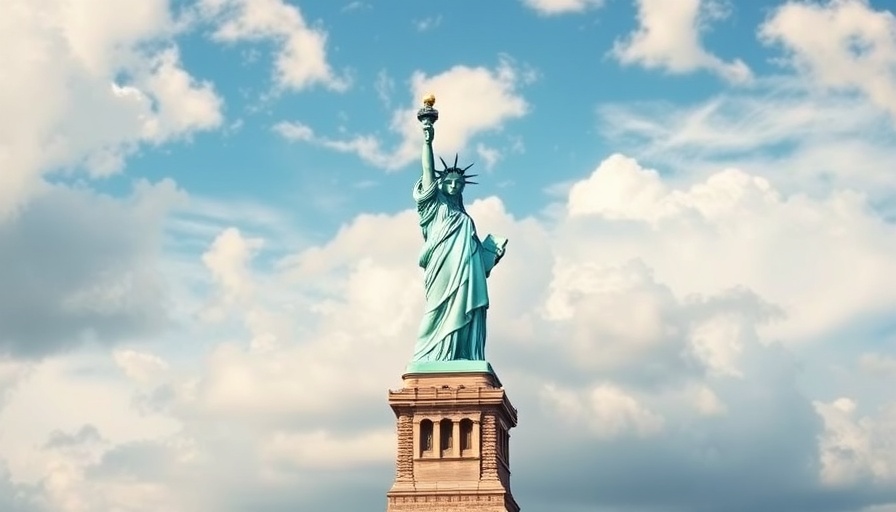
The Statue of Liberty's Gift: A Symbol of Lost American Values
The recent demand from French politician Raphael Glucksmann for the U.S. to return the Statue of Liberty is sparking considerable debate. Once a powerful symbol of freedom and democratic values, the statue now represents a significant divide in U.S.-European relations. Since its unveiling in 1886, the statue has stood proudly in New York Harbor, celebrating the shared ideals between France and the United States. However, Glucksmann’s assertion that the U.S. has strayed from these ideals suggests a deep-rooted discontent with contemporary American policies and leadership.
A Historical Context: The Transformation of a Symbol
The Statue of Liberty was gifted to the United States by France as a representation of friendship and a celebration of liberty and enlightenment following the American Revolution. Designed by French sculptor Frédéric Auguste Bartholdi, this monumental statue was once a beacon of hope for immigrants arriving on American shores. But as Glucksmann points out, the shifting political landscape—especially under recent administrations—has led many, including him, to question whether these principles are still upheld in today's America.
Emotional and Cultural Underpinnings: What’s at Stake?
This proposal isn't merely a whimsical request; it's steeped in historical significance and modern implications. For many in France, the call for the statue's return reflects a deeper frustration with the perceived degradation of democratic values within the U.S. Glucksmann voiced concerns about issues such as the dismissal of scientific voices and support for authoritarian regimes, which he believes betray the fundamental freedoms the statue was meant to symbolize.
Implications on American Prestige in Global Affairs
As many see it, the gesture of taking back the statue could symbolize a broader critique of American foreign policy. Glucksmann criticizes the U.S. for what he views as a betrayal of the foundational values embodied by the statue. On a global scale, this scenario raises pertinent questions about how the U.S. influences notions of democracy, freedom, and alliance-building in today's geopolitical context.
Future Predictions: Will it Spark Action or Debate?
With the world watching, this call could either ignite a deeper diplomatic dialogue about shared values or serve as a mere footnote in the ongoing U.S.-Europe discourse. If the situation continues to escalate, we may see more European leaders voicing similar sentiments, resulting in strained diplomatic relations. The monument’s future could very well become a rallying point for discussions about the values nations prioritize.
What Can Businesses Learn from This Dialogue?
Business professionals should take heed of how cultural and political symbols influence public perception. As the debate around the Statue of Liberty continues, businesses must navigate the shifting sentiments of both domestic and international markets. Understanding the historical and emotional narratives linked to such symbols can provide insight into consumer behavior and expectations, particularly in a climate that increasingly values corporate social responsibility and sustainable practices.
In conclusion, the dialogue surrounding the Statue of Liberty's demand illustrates the complex interplay of history, culture, and modern politics. For businesses looking to thrive amidst these complexities, awareness and sensitivity to social narratives will be essential for navigating future successes in diverse environments.
 Add Row
Add Row  Add
Add 



Write A Comment